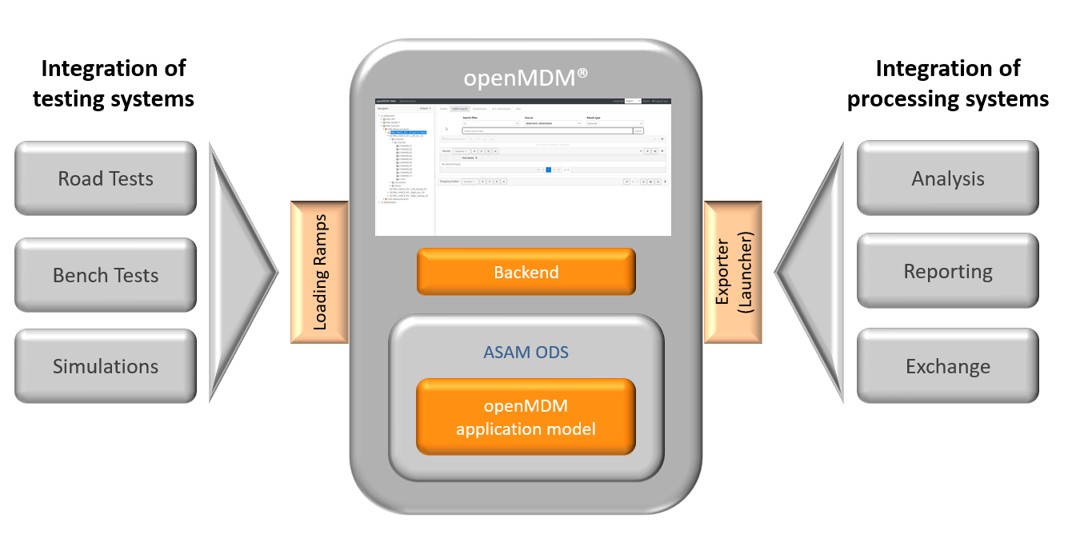An important step towards virtual vehicle development: The openMDM working group presented solutions for integrated data management to representatives of the Prostep ivip FDX working group
The prostep ivip FDX Working Group, in coordination with the VDA, has defined a standardized data format for the exchange of functional data between OEMs and suppliers. Functional data are measured, estimated or calculated characteristic curves, arrays of characteristics and parameter values of vehicle components. Development engineers need this information for defining simulation models.
The new standard aims streamlining the processing of functional data by compiling all relevant information in a machine-readable format. With this format – on the one hand – a data requester will be able to describe his requirements on specific functional data. On the other hand, the data supplier will be able to fully understand these requirements, so that the relevant test or simulation data can be generated.
Basis for the FDX data format are the widely-used industry standard ASAM ODS, the related ATFx data exchange format (XML) and the openMDM application model. This allows centrally managing huge amounts of FDX files with the help of open, tool-independent data management solutions such as the openMDM Framework.
To deepen the relationship between both groups, Peak Solution organized a presentation by representatives of the Eclipse openMDM working group for the members of the prostep ivip FDX Workflow and Implementor Forum.
First, Michael Plagge, Ecosystem Development Director at Eclipse Foundation, explained the role of the Eclipse Foundation as a driver of collaboration and innovation on an industrial scale and classified the openMDM project and the openMDM Working Group as part of the Eclipse Automotive Top Level Project.
Then Gert Sablon, Senior Director Simcenter Testing Solutions at Siemens Digital Industries Software, gave an insight into the background of openMDM, in particular which challenges related to test data management exist, how the openMDM Working Group came to life, and what kind of problems can be solved today with the openMDM Framework. He also gave an outlook on new topics that have to be tackled in the field of test data management, such as e.g. a closer integration with simulation applications , the use of Big Data and Advanced Analytics technologies as well as cloud computing. In this context he emphasized the increasing need for more collaboration between all participants.
Finally, Christian Domrös, Product Manager at Peak Solution, presented how the components of openMDM can be used as an integration platform for the transparent management of different data sets coming from physical tests and simulations and what the implementation of coherent tool chains could look like.
Overall, the event once again demonstrated the need for open, manufacturer-independent test data management platforms that offer companies significant added value compared to proprietary stand-alone solutions that are still often used in many companies today.

